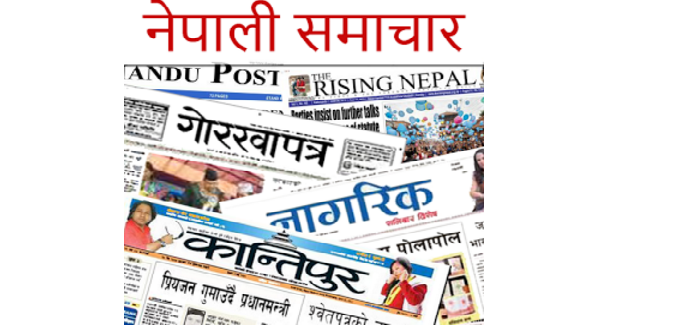Why Has English Journalism Failed To Make A Mark In Nepal?
ARUN BUDHATHOKI;

KATHMANDU: Recently, a lot of Nepalis living abroad have been investing in news portals and even those who have enough money are spending freely to have ‘influence and control’. As a result news sites online have increased manifold in Nepal but this does not hold for news in the English language. Why has English journalism failed to make a mark in Nepal?
First, most mainstream media refuse to invest in English journalism. I can say this from experience -- in working with all corporate media houses -- and have seen it first-hand. The owners and the management somehow have this belief that English language journalism belongs to the ‘copy & paste’ format where they hire incompetent staff and make them do low-paying jobs for extended hours. There’s no training and not even encouragement for them. Eventually, they leave and the company finds someone else to do the ‘same job’. Why do the corporate houses in Nepal hesitate to invest then?
Two, most English media outlets excluding Nepali Times are suffering from a lack of professional journalism. Many just rely on ‘copying & pasting’ news from the Nepal National Newscast Agency. They do not wish to spend an extra penny to publish investigative and invigorating articles. This lackluster mindset has affected the growth of English journalism. They often argue that advertisers do not provide advertisements to English media in Nepal. But what about the profit they make? Why don’t they invest in such a way that income is generated and the company is benefited at the same time?
Three, the problem with media houses in Nepal is that most of them are affiliated with political parties and their editorial automatically reflects which part they support. This has limited the scope for independent media to grow but not necessarily will stop any new media to emerge. However, sources have revealed that most advertisements come from Indian companies based in Nepal and they usually need a green signal from the Indian Embassy in Nepal. It is known that mainstream media receives the maximum advertisements due to its pro-India policy. Despite sound revenue, mainstream media continues to rely on advertisements as they refuse to pay interns and journalists. How are English newspapers, both online and offline, running then?
Mainstream media in Nepal usually hires a [in] competent editor who looks after the editorial and finance of the company. He is given a car and enjoys exposure, freedom and control. I wrote ‘He’ because till now no media house has hired ‘a woman editor’ except in national magazines. Moreover, corporate houses handing over exclusive authority to the editor is confusing. This is unusual in the sense that editors are given the power to not only hire people they like but also determine what position and how much salary they would get. This unprofessional act has severely affected English journalism.
The other problem with mainstream media is the nexus that certain groups have created. It’s mind-boggling how these groups, including management and editorial, act more as politicians than journalists and create their own network to not let anyone come through. Politicization of media houses in Nepal has severely hurt youngsters who aspire to become good journalists and not politicians. Media houses are to be blamed as they don’t bother to pay its staff on time while only those in higher posts enjoy handsome paycheck and benefits.
Lastly, those with good command of English soon realize that a career in the media is not worth their time, and leave at the first opportunity they get. What happens next is the same thing: recycling the exact method of hiring people. One wonders how long it can go on like this.
(The writer is Nepal Editor, The Citizen)

